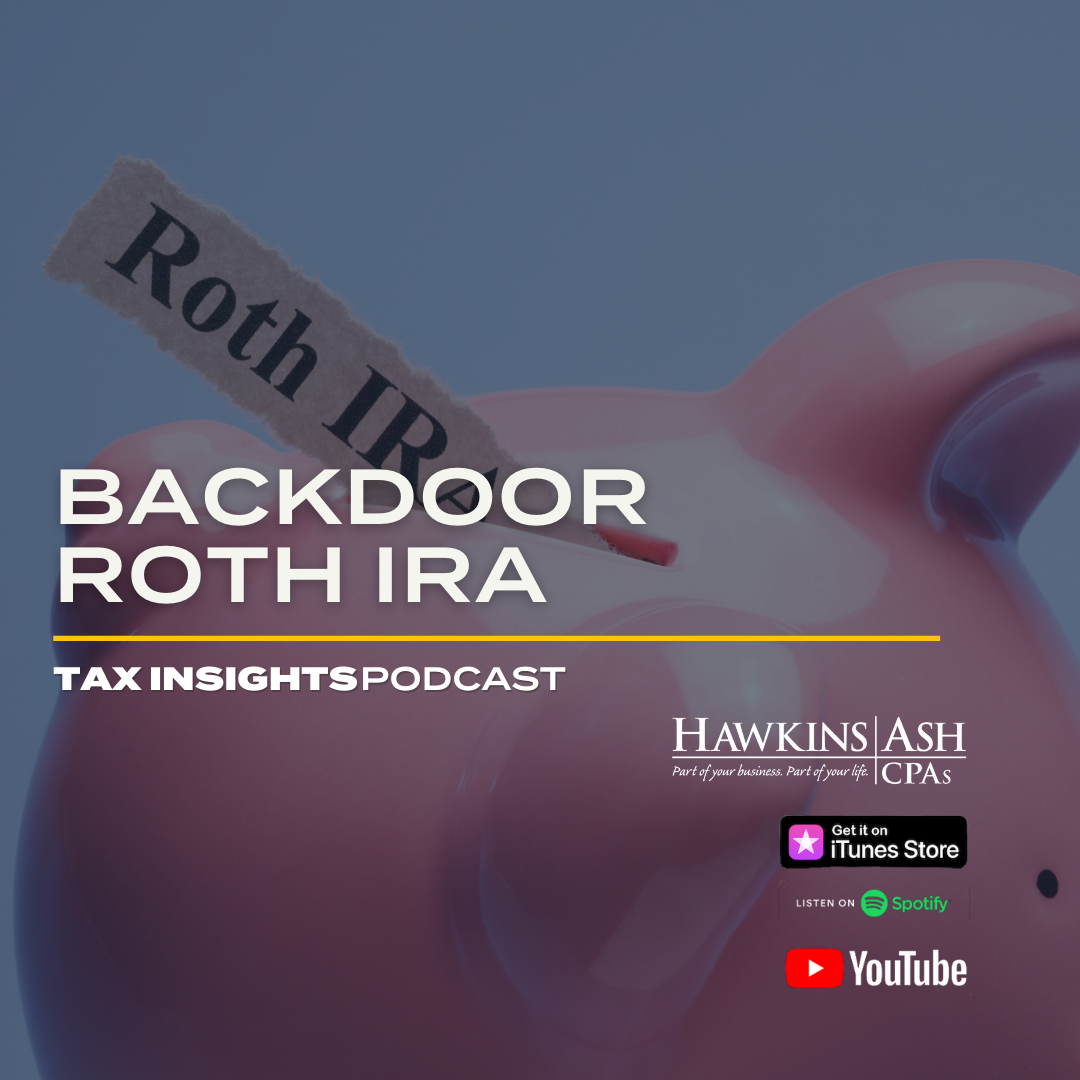Currently, it looks like the tax rate will be going up, especially for those in the higher brackets. If rates are expected to be higher when you retire than what they are now, Roth IRAs should be a part of your tax planning conversation. The problem is that if your income is too high right now, the amount that you can contribute to these accounts may be limited.
If I remember from our prior conversations, a person can contribute to a Roth IRA, but they do not get a tax deduction.
- That is correct, both the amount that you contribute and the earnings come out tax free as long as you follow the rules.
- But as I mentioned earlier, the problem comes in when a person’s income is too high to be able to contribute.
What are the limits again?
- For 2021 – Single $125k – $140k – MFJ $198k to 208k
- $6,000 + $1,000 catch up (50 +)
- The contribution limits are based on earned income from wages or se income.
So if a person’s income is too high, how are they able to contribute?
- Backdoor Roth IRA
- Convert some of their regular IRA to a Roth IRA.
- There is no income limit on converting Traditional IRAs to Roth IRAs.
Let’s talk more about the backdoor Roth.
- The way that it works is that even if your income is too high-
- You can contribute to what’s called a Non-deductible IRA up to the max
- This non-deductible IRA is then converted to a Roth IRA
- Essentially doing the same thing as a Roth IRA contribution, but with one extra step
Can anyone do this?
- Unfortunately no.
- Only works if the person does not have any other IRAs – long story, but you will not want to have any other Traditional IRA accounts in order to do this.
- Ok if only 401(k) or 403(b)
What if someone already has a traditional IRA, what can be done?
-
- First, you can start by doing what we talked about earlier and that is to convert the existing Traditional IRA to Roth and then start doing the backdoor Roth.
- The second option, if available, is to roll your traditional IRA into your 401(k) or 403(b) accounts
- The company’s plan has to allow this
- May not be as many investment choices in the 401k or 403b
Be sure to talk to a tax professional if you have any questions about Backdoor Roth IRAs or would like further assistance.





